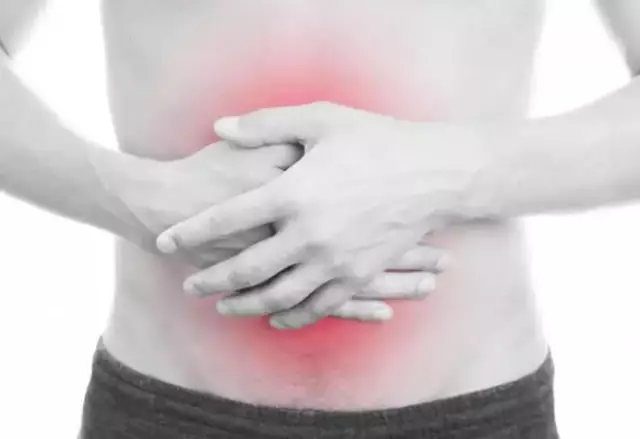- Author Rachel Wainwright wainwright@abchealthonline.com.
- Public 2023-12-15 07:39.
- Last modified 2025-11-02 20:14.
Vulvitis
Vulvitis is a disease in which the inflammatory process spreads to the external genital organs of a woman: large and small labia, the vestibule of the vagina and the clitoris. Sometimes vulvitis proceeds as an independent disease, but most often the inflammatory process covers the mucous membrane and inside the vagina. In such cases, we are talking about vulvovaginitis. Inflammation can develop as a result of exposure to chemicals, mechanical damage, or infection.
Vulvitis can appear regardless of the age of the patient. Distinguish between primary vulvitis (non-infectious), which most often affects girls and elderly women. In the first case, the inflammatory process can begin due to the peculiarities of the anatomical and physiological nature, in the second - due to age-related changes in the genital mucosa. For women of childbearing age, mainly secondary vulvitis (infectious) is characteristic, which occurs against the background of inflammation of the internal genital organs.
The reasons for the development of vulvitis
In addition to physiological factors, the causes of primary vulvitis can be non-observance of personal hygiene, the presence of endocrine diseases, uncontrolled intake of antibiotics, cystitis, helminthic invasion, diaper rash in obesity, vitamin imbalance, as well as exposure to chemicals, high temperature and mechanical factors.
The starting point for the development of secondary vulvitis is most often such diseases as trichomoniasis, gonorrhea, mycoplasmosis, chlamydia, herpes, intestinal infection and other diseases of the genitourinary system.
Vulvitis symptoms
The most characteristic symptoms of vulvitis are: a feeling of discomfort in the external genital area, severe burning, itching and soreness. The unpleasant symptoms of vulvitis are troubling while walking, during intercourse and urination. Externally, the inflammatory process is manifested by redness and swelling of the genitals: the clitoris, the vestibule of the vagina, large and small lips. Very often, during the illness, discharge of various consistency, color and odor is observed.
In advanced cases, the symptoms of vulvitis appear on the mucous membranes - ulcers and erosion are formed. During healing, scars form in these places, deforming the surface of the genitals, which further leads to complications in sexual activity. In some cases, vulvitis in children is accompanied by an adhesive process, in which the labia minora or synechia fusion occurs. A similar complication with vulvitis can cause infertility and disorders in intimate life.
Vulvitis treatment

Self-medication for vulvitis, despite the seeming ease of the disease, is not recommended. It is not always clear whether this is an independent disease or a concomitant one. Quite often, in parallel, additional treatment of vulvitis by specialists such as an endocrinologist, allergist or dermatologist is required. In addition, untreated vulvitis from the acute stage can turn into a chronic form, which is fraught with periodic repetitions of the disease, negatively affecting the immune system in general and the quality of intimate life in particular.
Therefore, at the first signs of inflammation in the external genital area, a consultation with a gynecologist is necessary. Based on laboratory and clinical studies, as well as visual examination, a diagnosis is made and appropriate therapy is prescribed.
In case of primary vulvitis, treatment consists in the use of trays with decoctions of medicinal herbs that have disinfectant and anti-inflammatory properties. The use of powders, ointments or creams of a similar effect is allowed. When a secondary vulvitis is detected, therapeutic therapy is aimed at eliminating the specific pathogen that caused the disease. It uses antibiotics, antimicrobial and antifungal drugs in various dosage forms. In addition, to relieve local symptoms, as in the case of primary vulvitis, baths with herbal decoctions are recommended. During the treatment of vulvitis, sex life is completely excluded.
Features of the treatment of vulvitis in children
The most common cause of vulvitis in children is helminths, therefore, in addition to the main treatment, antihelminthic drugs are prescribed. For the treatment of vulvitis in children, drugs that have a desensitizing effect are also used, for example, calcium preparations and antiallergic drugs. If the cause of vulvitis was reduced immunity, then the intake of immunostimulants and vitamins is prescribed. In the acute form of vulvitis, the child is shown bed rest.
For patients of all ages, adherence to a diet is recommended, where flour products, spicy, smoked and salty foods are excluded. You must eat fermented milk products, herbs, fruits and vegetables.
Prevention of vulvitis
The most important thing in preventing vulvitis is adherence to the rules of personal hygiene. It is undesirable to use soap and detergents with an antibacterial effect for washing, since not only harmful microorganisms are destroyed, but also beneficial microflora. As a result, the mucous membrane becomes unable to resist the penetration of pathogens into the body.
In the prevention of vulvitis, it is necessary to constantly strengthen the immune system, carry out deworming, timely eliminate foci of infection in the body and treat chronic diseases of a somatic nature (diabetes mellitus, obesity, and others).
YouTube video related to the article:
The information is generalized and provided for informational purposes only. At the first sign of illness, see your doctor. Self-medication is hazardous to health!






